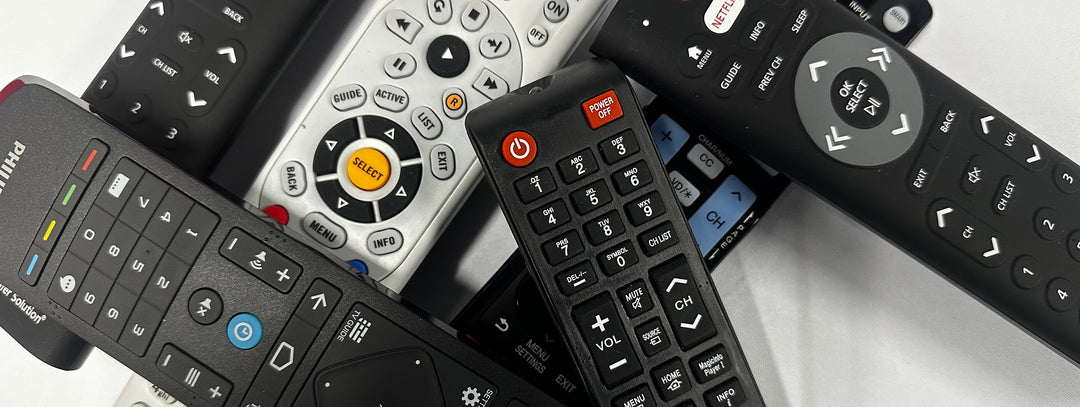Remember when the hotel TV was a relatively static amenity. A handful of cable channels, perhaps a pay-per-view movie option – that was the extent of in-room entertainment. But today, the landscape has been irrevocably altered. The rise of streaming services and casting technology has created a seismic shift in guest expectations, fundamentally disrupting the hospitality industry and forcing major TV manufacturers to innovate at an unprecedented pace.
The Home-Away-From-Home Expectation
Modern travelers, whether on business or leisure, are accustomed to a highly personalized and on-demand entertainment experience at home. They've cut the cord, subscribe to multiple streaming platforms like Netflix, Hulu, Disney+, and Amazon Prime Video, and seamlessly cast content from their mobile devices to their living room TVs. When they check into a hotel, this "home-away-from-home" expectation extends directly to the in-room entertainment.
Hotels that fail to meet this expectation risk staying relative, reduced guest satisfaction, and ultimately, a loss of bookings. Studies show that a strong Wi-Fi connection capable of supporting streaming and casting is now a major decision-driver for guests. They want to pick up where they left off on their favorite show, share vacation photos on the big screen, or simply browse YouTube with the ease they do at home.
How Streaming and Casting are Reshaping Hospitality
The disruption isn't just about guest satisfaction; it impacts hotel operations and revenue opportunities:
- Declining Pay-Per-View Revenue: The days of significant revenue from pay-per-view movies are largely over. Guests simply opt for their own subscriptions.
- Reduced Cable Costs: With guests bringing their own content, hotels can reduce or even eliminate expensive cable packages, leading to substantial cost savings.
- Enhanced Guest Experience: Offering seamless streaming and casting is no longer a luxury, but a must-have amenity that directly translates to positive guest experiences and increased loyalty.
- Operational Efficiency: Secure, integrated casting solutions reduce the need for hotel staff to troubleshoot entertainment issues related to external devices or complicated logins.
- New Revenue Streams: Smart TVs with integrated platforms can become dynamic marketing tools, promoting on-site amenities, local attractions, and even allowing guests to order room service directly from the screen.
The Evolution of Hospitality TVs: Manufacturers Respond
Leading hospitality TV manufacturers like LG, Samsung, and Philips have been quick to recognize this paradigm shift and have dramatically adapted their product offerings to meet these new demands. Gone are the days of basic, static hotel TVs. The focus is now on smart, connected, and guest-centric solutions.
Here's how they're responding:
- Built-in Casting Capabilities: A major leap forward is the native integration of casting technologies like Google Chromecast and Apple AirPlay directly into hospitality TVs. This eliminates the need for guests to bring their own dongles or for hotels to install external hardware. Guests can simply connect their personal devices to the hotel Wi-Fi and cast content with familiar ease, often by scanning a QR code for secure pairing.
- Integrated Streaming Apps: Many new hospitality TVs come with popular streaming applications pre-installed, allowing guests to log in securely to their personal accounts. Crucially, these systems are designed to automatically clear all login credentials and viewing history upon checkout, ensuring guest privacy and data security.
- Robust Connectivity: To support the increased demand for streaming, these TVs are built with robust Wi-Fi capabilities and often offer Ethernet connectivity for optimal performance. Manufacturers understand that a seamless streaming experience relies heavily on a strong and reliable network infrastructure.
-
Centralized Management Platforms: Beyond the in-room experience, manufacturers are developing sophisticated cloud-based management systems (like LG's Pro:Centric, Samsung's LYNK Cloud, and Philips CMND) that allow hotels to:
- Remotely manage and update TVs across the entire property.
- Customize welcome screens, branding, and promotional content.
- Monitor usage analytics to understand guest preferences and optimize services.
- Troubleshoot issues remotely, reducing the need for in-room visits.
- Hybrid Solutions: Recognizing that not all hotels can undertake a full TV replacement, manufacturers and solution providers also offer "set-back boxes" or casting devices that can be integrated with existing TVs, effectively transforming them into smart, casting-enabled units without a complete overhaul.
- Beyond Entertainment: The TV is evolving into a central hub for the entire guest experience. Future iterations will likely see deeper integration with hotel property management systems (PMS), allowing guests to control room settings (lighting, temperature), order services, and access information about the hotel and local area, all through the TV interface. AI-powered personalization, where the TV anticipates guest preferences based on loyalty profiles or past stays, is also on the horizon.
So which solution is right for you?
Just using the core management platforms for hospitality TVs from the major players, here's a brief comparison:
-
LG Pro:Centric:
- Focus: Known for its robust and customizable interactive platforms. It excels at creating custom user interfaces, welcome screens, and hotel information pages.
- Key Features: Strong content management, easy customization, often cited for its stability and user-friendliness for hotel staff. Supports both IP and RF infrastructure. Offers features like SoftAP for TV as a hotspot.
- Casting: Integrates with various casting solutions, including native Chromecast built-in in many newer models.
-
Physical Server: Pro:Centric uses an actual server, although small, that is mounted on the property.
-
Samsung LYNK Cloud:
- Focus: Emphasizes advanced data analytics and business intelligence to help hotels understand guest behavior and optimize promotions for increased revenue. It's a comprehensive cloud-based solution.
- Key Features: Centralized multi-property management, remote device control, content creation and deployment, detailed analytics on content consumption, and secure guest login/logout for streaming apps.
- Casting: Features built-in casting capabilities, typically compatible with Google Chromecast and ensuring secure guest logouts.
- Cloud-Based: Lynk Cloud is cloud based and does not require a server, only licenses for each TV.
-
Philips CMND:
- Focus: Designed for ease of use in content creation and management, aiming for simplified operation from installation to daily management. Strong emphasis on integrated Google services.
- Key Features: "CMND & Control" for remote management (updates, settings, monitoring), "CMND & Create" for intuitive content development (drag-and-drop interface, templates), and integrated Google Chromecast and Google Play Store access for guests. Often praised for its user-friendly interface.
- Casting: Native Google Chromecast integration is a core feature, offering seamless casting directly from guest devices.
- PC as a Server: The Philips CMND software will need a PC to act as the server. It is by far the simplest and most cost effective solution
All three are strong contenders, and the best choice often depends on a hotel's specific needs regarding customization, data utilization, and preferred operating system environment.
How They Work
With the appropriate licensing, guests can effortlessly connect to their personal accounts right from your in-room entertainment system. A simple QR code scan using their mobile device provides secure and immediate login, allowing them to enjoy their preferred shows and movies on the large screen. Upon checkout, your Property Management System (PMS) automatically clears all guest credentials, ensuring data privacy and preparing the system for the next arrival.
The Future is Connected and Personalized
For hotels, embracing the streaming and casting revolution is no longer an option – it's a strategic imperative. By investing in modern hospitality TVs and robust network infrastructure, you're not just providing entertainment; you're delivering a personalized, convenient, and "at-home" experience that today's discerning traveler demands. The manufacturers are providing the tools; it's up to hotels to leverage them to create unforgettable stays and stay ahead in a rapidly evolving market.





